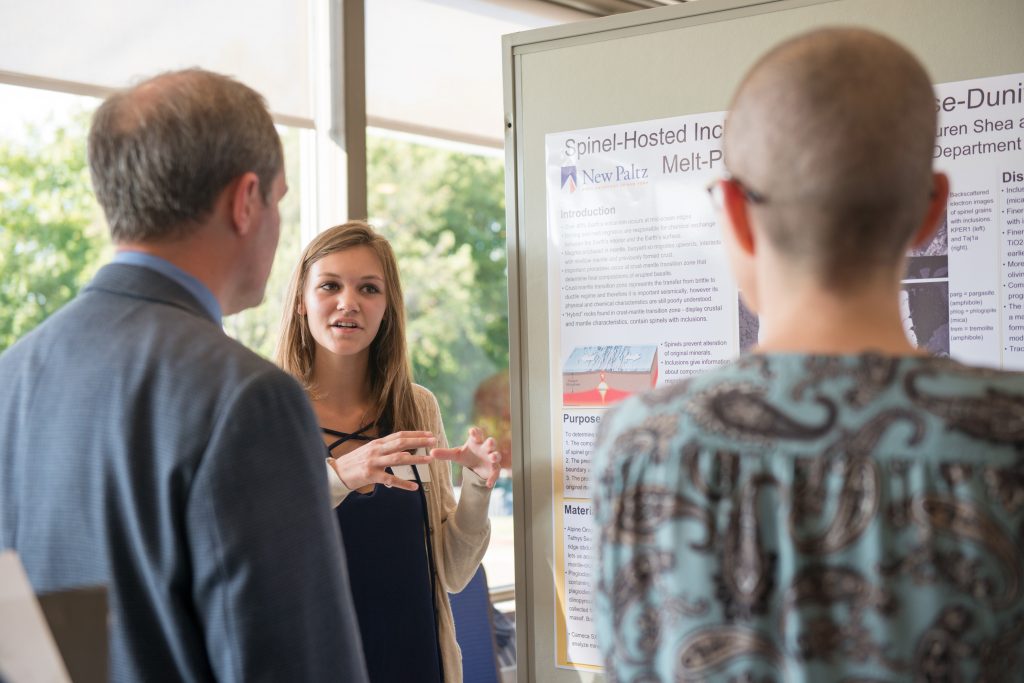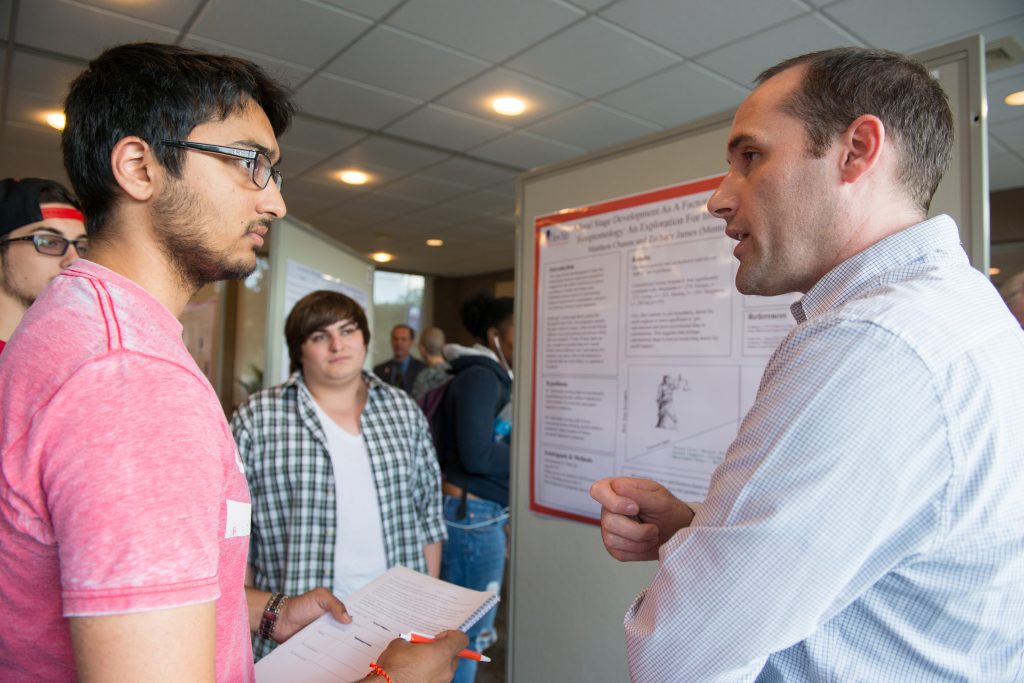SURE students talk summer research experience
 Undergraduate students who received funding from the Research, Scholarship and Creative Activities (RSCA) program for summer research projects presented findings and outcomes at the beginning of the fall ’16 academic year.
Undergraduate students who received funding from the Research, Scholarship and Creative Activities (RSCA) program for summer research projects presented findings and outcomes at the beginning of the fall ’16 academic year.
2016 was the biggest year yet for the Summer Undergraduate Research Experience (SURE) at SUNY New Paltz, as more than 20 students received support to work through the summer with faculty mentors on original research projects in a variety of areas of study.
“This program encourages ongoing faculty-student collaboration by enabling students to work full-time on a project over an eight-week summer period,” said RSCA director and biology Professor Maureen Morrow. “It has been my great pleasure to work with these students and their faculty mentors this past summer. Their enthusiasm and dedication are an inspiration.”
The expansion of the program meant that two presentation sessions were needed this semester, including a first-ever SURE poster presentation event, to allow all students to share their research with the campus community.
“We’ve gotten to the point where with the size of the program we just can’t fit everyone into an individual, oral presentation event,” said School of Science & Engineering Dean Dan Freedman. “That’s actually a good thing, because posters are a really great way to present science. If you go to big scientific conferences, this is what you see: a poster session where you can speak directly to the people who did the research.”
 [Click here to view full gallery and download photos]
[Click here to view full gallery and download photos]
Research projects were conducted in all seven of New Paltz’s School of Science & Engineering disciplines, and also in art history, sculpture, psychology, adolescent and early childhood education, political science, and women’s, gender & sexuality studies.
Regardless of area of study, the SURE program and the RSCA are primary resources for New Paltz undergraduate students who wish to gain valuable, real-world research experience before moving on to graduate-level study or careers in their field.
As an added bonus, some students are able to acquire those research reps without leaving campus.
Troy Ellick ’17 (Biology) worked with Assistant Professor Kara Belinsky on a project titled “Using a bird feeder network to characterize bird diversity across a suburban campus,” for which he got to work with the College’s avian residents on an almost daily basis.
“I had to get up at six in the morning every day to set up the nets, hoping to catch birds every day,” Ellick said. “I got a really good sense of the process of science, going from fieldwork to data to analysis. We ended up collecting thousands of Excel sheets worth of data, and going through all that really does help you learn about process.”
Part of the value of the experience, Ellick added, was in learning how to manage the unpredictability that sets in when researchers leave the lab to work in the field.
“I realized pretty quickly that it’s not something you can predict or control,” he said. “It’s more chaotic than scheduled work; you never know what’s going to happen with fieldwork. We were dealing with wild animals – at one point I had a cardinal bite my arm – and that’s not something you can prepare for without just doing it.”
More information about student research opportunities provided by the RSCA can be found online.

